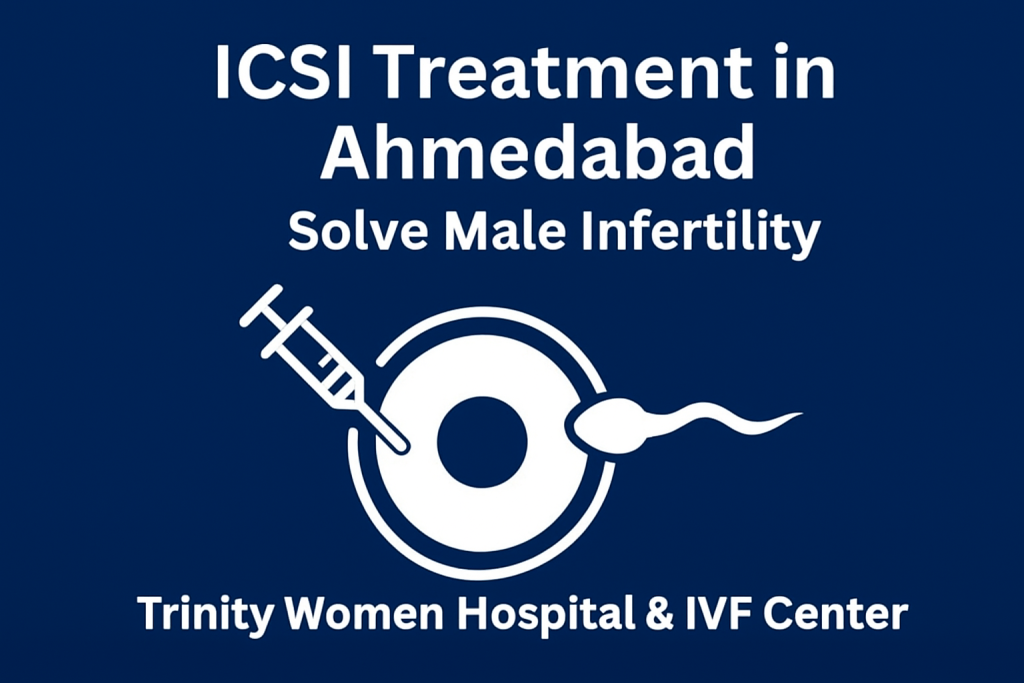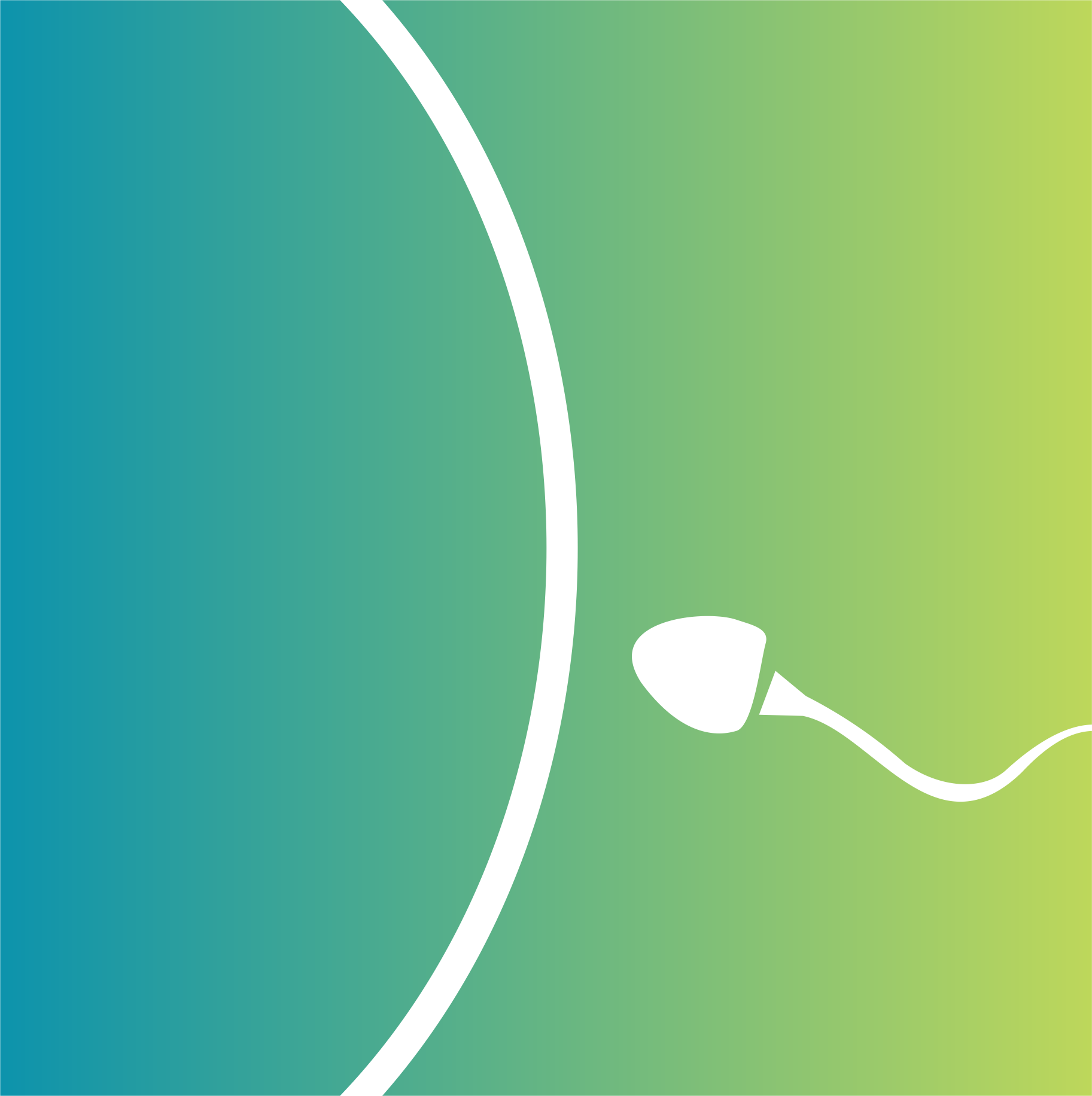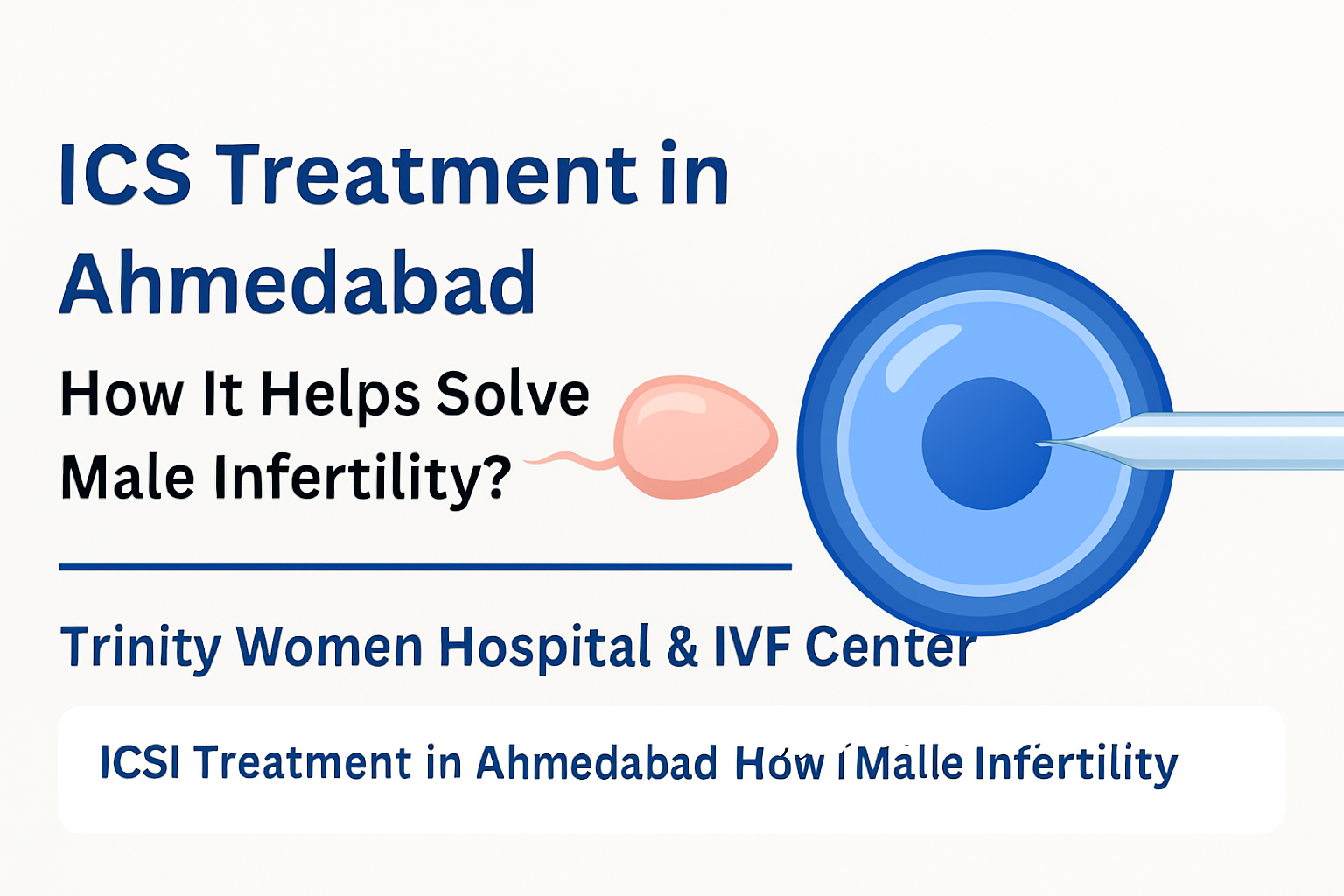Becoming parents is one of life’s most beautiful dreams—but for many couples, the journey to parenthood comes with unexpected challenges. One of the most common reasons for infertility today is male infertility, which affects nearly 40–50% of couples struggling to conceive.
At Trinity Women Hospital and IVF Center in Ahmedabad, we understand how emotionally draining this experience can be. The good news is that modern fertility treatments like ICSI (Intracytoplasmic Sperm Injection) have completely transformed how we treat male infertility. With ICSI, even a single healthy sperm can be enough to create life.
In this blog, we’ll explain what ICSI Treatment is, how it works, who can benefit from it, and why it’s one of the most successful options for couples facing male infertility.

What is ICSI Treatment?
ICSI (Intracytoplasmic Sperm Injection) is an advanced form of IVF (In-Vitro Fertilization) designed especially for male infertility. In this procedure, a single healthy sperm is directly injected into the center of an egg using a microscope and fine needle. This increases the chances of fertilization even when sperm count or motility is very low.
At Trinity Women Hospital and IVF Center, the ICSI process is performed by expert embryologists in a controlled lab environment. The technique ensures that even in cases where natural fertilization may not occur, the egg still gets the best chance of being fertilized successfully..
How ICSI Treatment Works – Step by Step
The ICSI process at Trinity Women Hospital and IVF Center involves the following steps:
- Ovarian Stimulation – The woman is given fertility medications to produce multiple mature eggs.
- Egg Retrieval – Mature eggs are collected using a short procedure under anesthesia.
- Sperm Collection – The male partner provides a semen sample. In some cases, sperm may be retrieved directly from the testicles (TESA/PESA).
- ICSI Fertilization – A single best-quality sperm is selected and injected into each mature egg under a high-powered microscope.
- Embryo Development – Fertilized eggs (embryos) are monitored for 3–5 days for growth.
- Embryo Transfer – The healthiest embryo is placed into the woman’s uterus for implantation.
This advanced technology allows couples with severe male infertility to achieve pregnancy even with minimal sperm availability.
Why Male Infertility Happens
Male infertility can occur due to several reasons, including:
- Low sperm count or motility
- Poor sperm morphology (shape)
- Obstruction in sperm passage
- Hormonal imbalance
- Genetic problems
- Lifestyle factors like smoking, alcohol, or obesity
At Trinity Women Hospital and IVF Center, we perform detailed diagnostic tests like semen analysis, hormonal evaluation, and DNA fragmentation testing to understand the root cause before recommending ICSI.
7 Key Benefits of ICSI Treatment
1. Helps Severe Male Infertility Cases
Even if the sperm count is extremely low or sperm is retrieved surgically, ICSI allows fertilization with just one healthy sperm.
2. Bypasses Natural Barriers
ICSI eliminates sperm-related issues such as poor motility or inability to penetrate the egg.
3. High Fertilization Success
Fertilization rates with ICSI are up to 70–80%, much higher than conventional IVF.
4. Suitable for Frozen Sperm or Eggs
ICSI works perfectly even when using frozen or previously stored eggs/sperm.
5. Reduces Fertility Uncertainty
Couples who failed IVF cycles before often achieve success with ICSI.
6. Useful for Azoospermia Cases
When sperm is retrieved directly from the testicles (TESA/PESA), ICSI ensures successful fertilization.
7. Increases Hope & Emotional Relief
For many couples, ICSI brings renewed hope after years of struggle. At Trinity Women Hospital and IVF Center, we’ve seen countless success stories where couples became parents through ICSI after losing faith in other treatments.
When is ICSI Treatment Recommended?
ICSI is recommended in the following cases:
- Very low sperm count or motility
- Abnormal sperm morphology
- Blockages or vasectomy cases
- Unexplained infertility after failed IVF cycles
- Use of frozen sperm or donor sperm
- Eggs not fertilized in prior IVF attempts
At Trinity Women Hospital and IVF Center, our fertility specialists evaluate both partners’ medical conditions before suggesting ICSI, ensuring it’s the right fit for each couple.
Male Infertility & Lifestyle Factors
Lifestyle plays a major role in male fertility. Factors like smoking, alcohol, poor diet, lack of exercise, and stress can damage sperm quality. At Trinity Women Hospital and IVF Center, we help men improve fertility naturally before or during treatment.
We advise:
- Quit smoking and alcohol
- Maintain a healthy weight
- Exercise regularly
- Eat antioxidant-rich foods
- Get enough sleep
- Manage stress through yoga or meditation
Combining healthy habits with ICSI treatment improves both sperm health and overall success rates.
Emotional Support for Couples
Infertility is not only a medical journey—it’s emotional too. Many couples dealing with male infertility feel guilt, stress, or hopelessness. At Trinity Women Hospital and IVF Center, we provide counseling and emotional care throughout the process.
Our goal is not just to help couples conceive, but also to help them heal emotionally. Each ICSI success story reminds us that with patience and modern science, parenthood is possible for everyone.
FAQs | ICSI Treatment
Q1. What is the success rate of ICSI treatment?
The success rate of ICSI depends on age, egg quality, and sperm health. At Trinity Women Hospital and IVF Center, the success rate ranges between 60–75% per cycle, which is among the best in Ahmedabad. Personalized care and advanced lab facilities make outcomes more reliable.
Q2. Is ICSI treatment painful?
No. The ICSI process is painless for both partners. Egg retrieval is done under mild anesthesia, and sperm collection is simple. Most women return to normal activities the next day. At Trinity Women Hospital and IVF Center, the procedure is designed for maximum comfort.
Q3. Can ICSI help if the male has zero sperm count?
Yes, in many cases. Even if there’s no sperm in the semen, sperm can be retrieved directly from the testicles using techniques like TESA or PESA, and used for ICSI. At Trinity Women Hospital and IVF Center, our specialists perform these advanced procedures with precision.
Q4. How much does ICSI treatment cost in Ahmedabad?
The ICSI treatment cost in Ahmedabad usually ranges from ₹1,20,000 to ₹2,00,000 per cycle, depending on medicines, lab procedures, and the couple’s specific needs. At Trinity Women Hospital and IVF Center, pricing is fully transparent and customized based on individual cases.
Q5. How is ICSI different from IVF?
IVF involves placing many sperm around an egg and waiting for natural fertilization, while in ICSI, a single sperm is directly injected into the egg. This makes ICSI ideal for male infertility. At Trinity Women Hospital and IVF Center, both IVF and ICSI are available, and doctors guide couples to the most effective option.
Conclusion
ICSI treatment is one of the most revolutionary solutions for male infertility. It gives hope to couples who once believed parenthood was impossible. With the expertise and advanced technology available at Trinity Women Hospital and IVF Center, Ahmedabad, couples can achieve pregnancy safely, effectively, and confidently.
If you or your partner are facing infertility challenges, don’t lose hope. ICSI may be the key to turning your dream of parenthood into reality. At Trinity Women Hospital and IVF Center, we’re here to walk this journey with you—with compassion, care, and cutting-edge fertility solutions.

